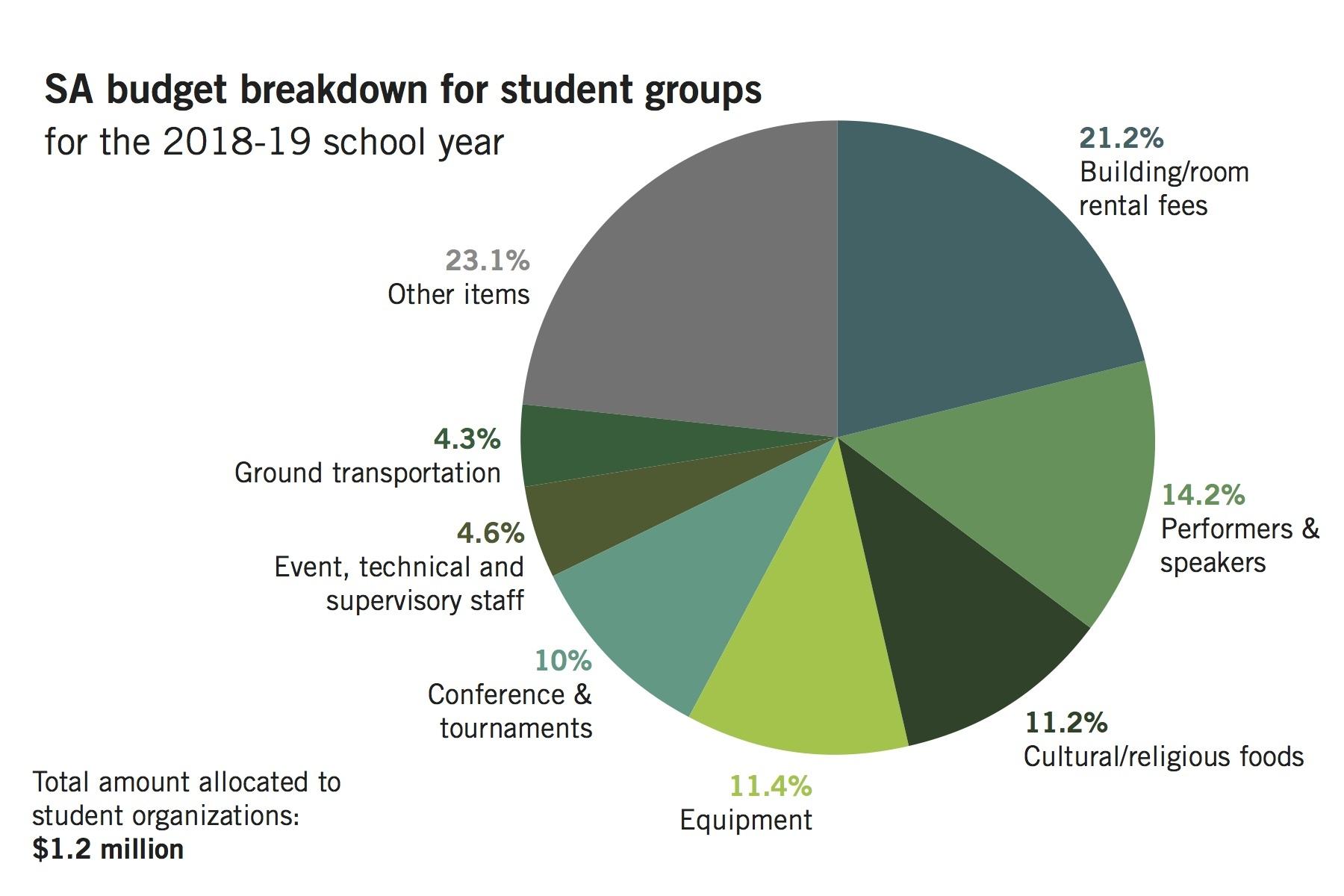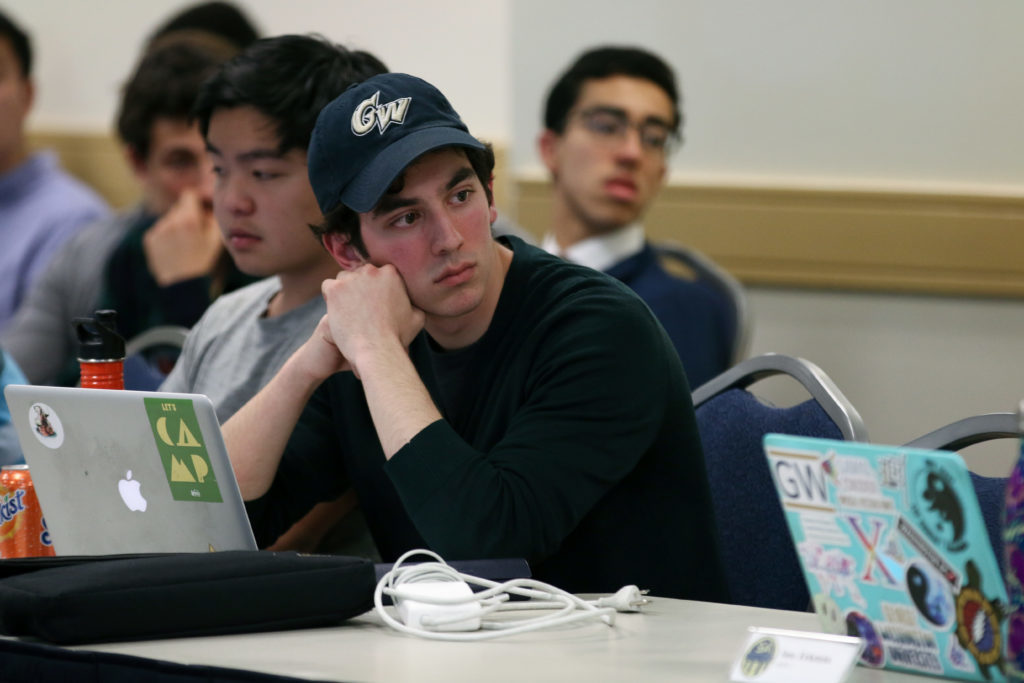Updated: May 3, 2018 at 9:35 p.m.
The Student Association is pulling less money from its budget to fund student organizations next academic year.

Emily Recko | Graphics Editor
Source: Budget powerpoint presentations
Members of the finance committee allocated roughly $1.2 million of the SA’s $1.8 million budget Monday to fund student organizations next academic year – about $100,000 less than last year. Sen. Will Raderman, U-at-Large, and chair of the finance committee, said members of the committee were stricter with their allocations this year because they did not want to fund items that were not guaranteed to be used, like decorations for events or unscheduled programming.
“Any items that required a substantial amount of funding where we could alleviate that kind of weight for all the orgs and let them focus on the more nitty-gritty things – that was what the thought process was,” Raderman said.
He said the majority of allocations went toward expenses that student organizations would definitely incur, like room rental space and catering for religious and multicultural food – which comprised about one-fifth and one-tenth of total allocations, respectively.
Student organizations were given more funding than needed last academic year because the finance committee lacked specific details about how the money would be spent, and often didn’t have access to information like the time and location of a student group’s event, he said.
“The focus has definitely been, at least throughout this year and going into next year, is accountability for different orgs rather than just distributing money kind of blankly,” Raderman said.
More than 300 student organizations will receive funding next year and about 30 student groups did not receive any funding. Compared to last year, 201 organizations received less funding, 163 organizations received more funding and 32 student groups’ funding were unchanged.
Leaders of student groups said they were more intentional this year about outlining the exact items – like rental rooms and airfare – that their funding would be spent toward because it was easier to receive money if they could present a detailed proposal.
Davone Morales, the general manager of GWTV, said his organization wasn’t allocated any funding even though he requested about $500 to renew the group’s website subscription. Last year, GWTV received about $1,300 in SA funding to renew website subscriptions and purchase a tripod bag.
“It was more things that were necessary for our organization to continue, not just stuff to make us look more pampered,” Morales said.
Morales said the organization was in debt when they requested funding. The SA bylaws prevent the finance committee from allocating additional funds to organizations that are in debt.
He said GWTV will likely apply for a co-sponsorship – leftover money in the SA’s budget – in the fall to pay for items that were not funded during general allocations.
Raderman said the SA will have about $500,000 in co-sponsorship funds – more than $50,000 more than last year – that will be used to pay off debt to the University and fund last-minute requests throughout the academic year.
John Olds, the finance chair of College Republicans, said the organization received about 11 percent of the roughly $70,000 they requested for next academic year, but the allotted amount was in line with the funding they’ve received in years past. He said the organization requests more funds than the costs they anticipate to incur because they want to have the legroom to host more events if the funds are given.
College Republicans received about $7,800 for next academic year – roughly $3,000 more than the group received for this year – which Olds said will be used to fund the group’s midterm election party and a fall speaker series, which the organization did not host in the fall.
“We just requested more money and we were given more money, but it looks like the finance committee was a little more liberal in their donations anyway,” he said.
Hannah Finkel, the president of Chabad GW, said the organization received $5,000, compared to no funding last year, and the money will help the group pay for mandatory costs, like GW Police Department presence at the annual Welcome Back Chabad event this fall.
Finkel said her organization was able to receive funds because they were specific about how its allocation would be spent and included the set time and place of the event in the application.
“We were able to find our own money and show the value of what that money could give,” she said. “I know that’s not applicable to every student organization, but that’s one way to really show the SA you are serious about money and will do things that you care about with the money.”
Rebecca Leppert, Sarah Chadwick and Parth Kotak contributed reporting.
This post was updated to reflect the following correction:
An earlier version of this article misspelled John Olds’ name. It is now spelled correctly. We regret this error.





